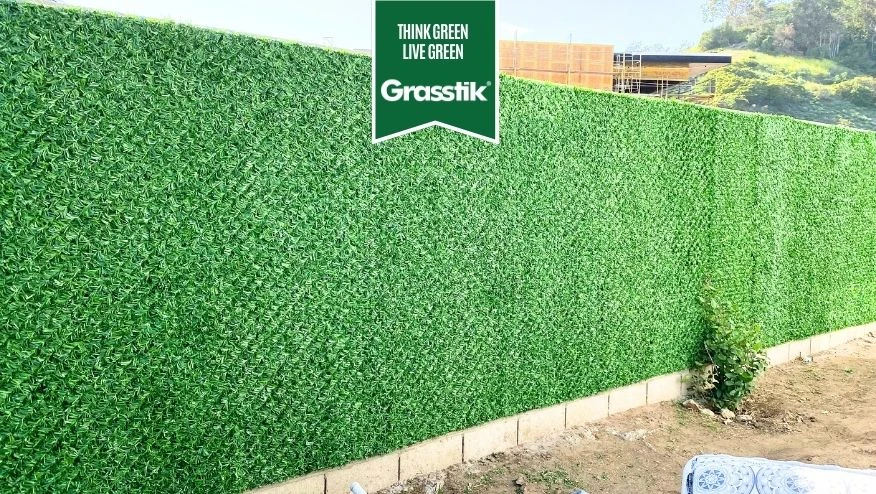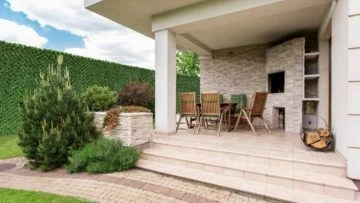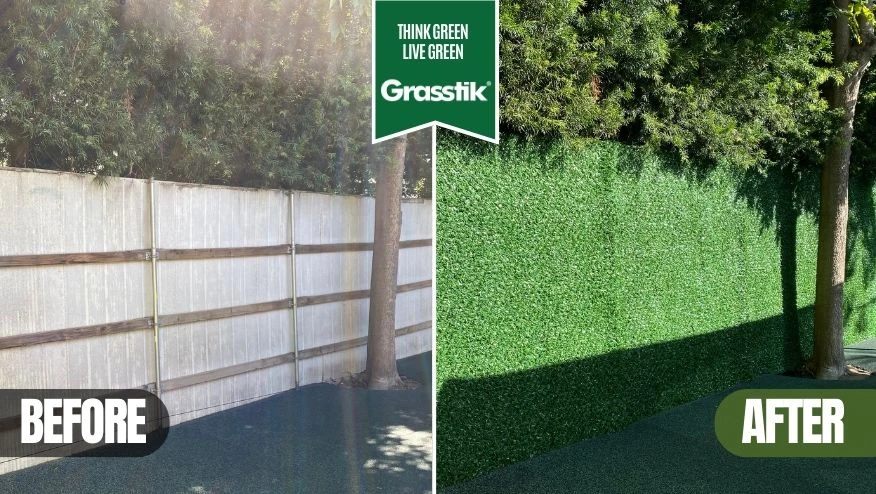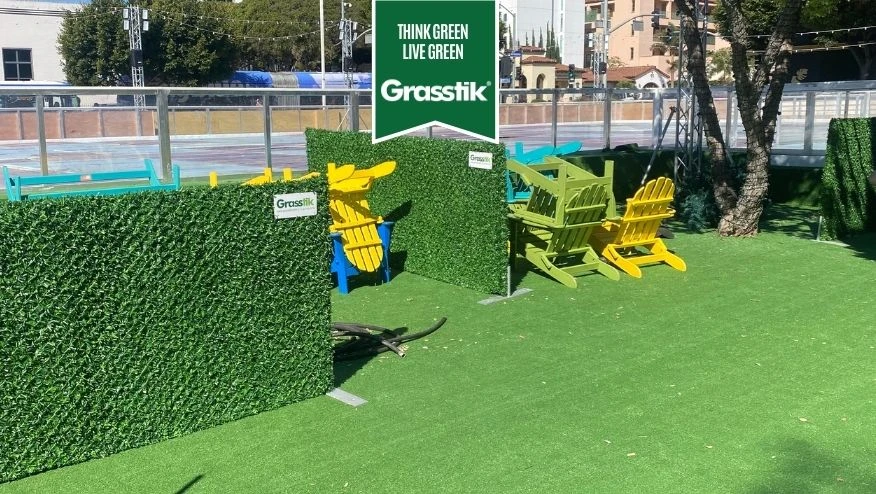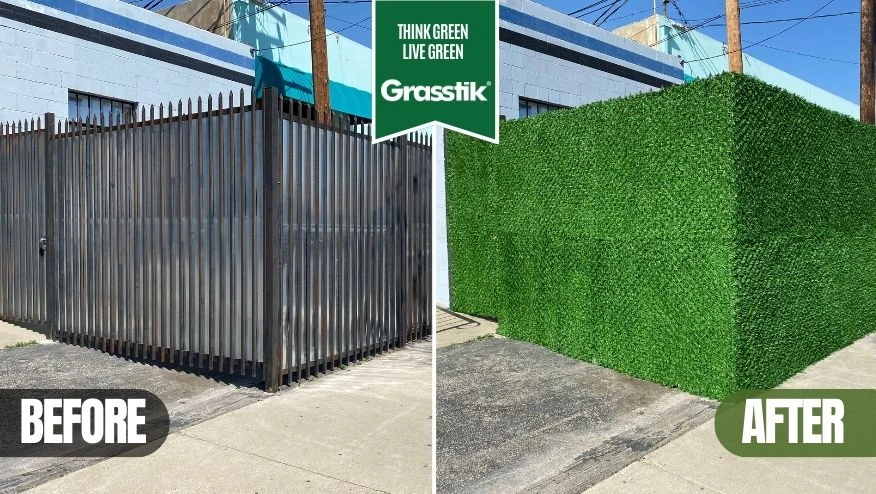
Adding privacy to an aluminum privacy fence involves creative and practical solutions. One popular option is the use of aluminum privacy fence panels, which are designed to provide a solid barrier, ensuring that your space remains secluded and free from prying eyes. These panels not only enhance privacy but also contribute to the aesthetic appeal of the fence, making it a perfect blend of functionality and style.
Enhancing Privacy with Aluminum Fences
Aluminum fences are known for their durability and aesthetic appeal, but they can also be adapted for increased privacy. There are numerous ways to enhance the privacy of your aluminum fence. its own unique benefits and style. Whether you're looking for a solution that's purely functional, one that enhances the aesthetic appeal of your property, or a mix of both, there's an option to suit your needs. From artificial grass panels that add a touch of greenery to traditional privacy slats, the possibilities are diverse.
- Artificial Grass Panels or Rolls: You can purchase artificial grass in panels or rolls that can be attached directly to the aluminum fence. These products are designed to mimic the look and feel of real grass and come in various shades of green and different blade lengths.
- Privacy Slats: Inserting privacy slats between the pickets of the fence is a common method. These slats can be made of various materials, including vinyl or wood.
- Privacy Screens or Panels: Attaching privacy screens or panels made of materials like wood, composite, or vinyl can block the view.
- Planting Shrubs or Hedges: Planting dense shrubs or hedges along the fence line can provide natural privacy.
- Decorative Panels: Instead of standard aluminum panels, you can choose decorative panels that have less space between the pickets or unique designs that obstruct visibility.
- Lattice Top: Adding a lattice section on top of the aluminum fence can increase privacy while also adding an aesthetic element. Lattice can be made from materials like wood or vinyl.
- Climbing Plants or Vines: Growing climbing plants or vines along the fence can create a natural and beautiful privacy screen. It's essential to choose plants that are suitable for your climate and won't damage the fence structure.
- Outdoor Fabric Panels: Installing durable outdoor fabric panels can provide privacy. These can be attached to the fence and are available in various colors and patterns.
- Bamboo Screening: Bamboo screens can be attached to the outside of the aluminum fence, offering a quick and eco-friendly way to add privacy. Bamboo is durable and provides a unique, natural look.
- Fence Extensions: If permissible by local regulations, adding fence extensions to increase the height of your aluminum fence can enhance privacy.
- Solid Infill Panels: For some aluminum fence designs, you can use solid infill panels instead of the standard open design. These can be made from aluminum or other materials and are designed to fit between the posts.
- Combination with Other Fencing Materials: Combining aluminum fencing with other materials like wood or brick pillars can create more privacy while maintaining an elegant look.
How to Install Aluminum Fences?
Installing aluminum fencing privacy solutions begins with careful planning and precise measurements. Firstly, map out the fence line and mark the positions for the posts, ensuring they are evenly spaced. After digging the post holes, securely anchor each post in concrete, maintaining a consistent height for a uniform look. Next, attach the aluminum fence privacy slats or panels to the posts. This step requires attention to detail to ensure the panels are level and properly aligned, thus guaranteeing not only privacy but also a visually appealing finish. The robust nature of aluminum makes this a manageable task, even for those relatively new to DIY projects.
In the final phase of installation, the aluminum fence privacy screen can be added. This element is particularly crucial for those seeking an extra layer of seclusion. The screen is attached directly to the fence, offering an immediate upgrade in privacy and often serving as a stylish complement to the overall design of the fencing. This process, while straightforward, adds significant value to the fence’s functionality and aesthetic.
- Planning: Measure the area and plan the layout, considering gate placement.
- Post Installation: Dig holes for the posts, ensuring they are evenly spaced and aligned. Concrete is often used to secure the posts.
- Panel Attachment: Attach the fence panels to the posts, usually using provided hardware.
- Gate Installation: If applicable, install the gate and ensure it functions correctly. Professional installation is recommended for optimal results.
How Long Does Aluminum Fence Last?
The longevity of aluminum privacy fences is a standout feature, with a lifespan that often exceeds other fencing materials. Typically, these fences can last upwards of 20-30 years, and in many cases, even longer. This durability stems from aluminum's inherent resistance to environmental elements like moisture, sunlight, and extreme temperatures. Unlike wood that may rot or steel that could corrode, aluminum maintains its integrity and appearance over time. Its resilience makes it a preferred choice for those seeking a long-term fencing solution without the need for frequent replacements or repairs.
Is Aluminum Fence Expensive?
When evaluating the aluminum privacy fence cost, it's important to consider both the initial investment and long-term value. Aluminum privacy fencing is generally more expensive upfront than options like wood or vinyl. However, its cost is often justified by its longevity and minimal maintenance requirements. Over time, the lack of need for frequent repairs or replacements can make aluminum fencing a more economical choice in the long run, providing durable and aesthetically pleasing boundaries for your property without continual financial input.
Is Aluminum Fence Strong?
In terms of strength, aluminum fence privacy structures are robust and reliable. While they may not offer the same level of fortitude as wrought iron, aluminum fences are considerably stronger than wooden fences. They withstand environmental stresses like wind and rain without bending, warping, or breaking. This makes them a viable option for those seeking a balance between strength and aesthetic appeal. The structural integrity of aluminum fencing ensures that it remains a steadfast and resilient boundary for your property.
Do Aluminum Fences Rust?
A significant advantage of privacy aluminum fences is their resistance to rust, setting them apart from other metal fencing options like iron or steel. Where iron fences might succumb to rust and corrosion over time, especially in humid or coastal environments, aluminum maintains its pristine condition. This rust resistance is due to aluminum's protective oxide layer, which guards against the elements. This feature makes aluminum an ideal choice for fencing, as it remains durable and visually appealing over the years, without the maintenance challenges associated with rust-prone materials.
Does Aluminum Fencing Add Value to the House?
Installing a privacy aluminum fence can significantly enhance a property's value. Not only does it provide a secure and private boundary, but the addition of decorative aluminum privacy fence panels can also elevate the aesthetic appeal of the home. Opting for a modern aluminum privacy fence aligns with contemporary design trends, making the property more attractive to potential buyers. This type of fencing is not just about function; it's a design statement that can boost curb appeal and, consequently, the overall market value of your home. It's an investment that pays dividends both in terms of privacy and property valuation.
How to Clean Aluminum Fence
Maintaining a privacy fence aluminum is straightforward and hassle-free. For regular upkeep, a simple wash with water is often sufficient to remove dust and debris. If the fence has aluminum fence panels privacy, a gentle spray with a garden hose can clean hard-to-reach areas within the panels. For more stubborn dirt or grime, a mild soap solution and a soft brush can be used without damaging the fence's surface. Rinse thoroughly after cleaning to ensure no soap residue is left behind. This ease of maintenance not only keeps the fence looking new but also prolongs its lifespan, making aluminum an ideal material for both privacy and aesthetic purposes.
- Basic Cleaning: Use a hose to wash off loose dirt.
- Soap Solution: For more thorough cleaning, use a mild soap solution and a soft brush or cloth to gently scrub the fence.
- Rinse Well: Rinse the fence thoroughly with water after cleaning.
Remember, the specific methods and materials for privacy, installation, and cleaning may vary based on the style and brand of the aluminum fence, as well as individual homeowner preferences and local building codes.
In conclusion, aluminum fencing stands out as an excellent choice for homeowners seeking durability, aesthetic appeal, and low maintenance. Whether you're looking for enhanced privacy, a long-lasting boundary, or a stylish addition to your property, aluminum fencing meets these needs with elegance and efficiency. Its resistance to rust, strength, and ability to add value to your home make it a wise investment. With easy installation and straightforward maintenance, an aluminum fence is a practical and visually appealing solution for modern home fencing needs.

